SNE Press Release 23 September 2015 - SNE calls for appropriate legal solution for special nutrition products
While the Commission “Better regulation” strategy is currently shaping the EU political environment, Specialised Nutrition Europe has re-affirmed its position in favour of clear, evidence-based, and balanced legislation for the sector at an event focusing on “How to guarantee consumer protection and innovation” for Foods for Specific Groups on 22 September.
Discussions at the event focused on the new rules to be adopted under the Food for Specific Groups (FSG) Regulation, which will come into force on 20 July 2016, and for which a range of follow-up actions such as Commission reports and Delegated regulations are currently under discussion. Following the entry into force of this FSG Regulation, the so-called “PARNUTs Directive” will be repealed.
SNE expressed strong support for the Delegated Regulations on infant formulae and follow-on formulae, baby foods and foods for medical purposes, which is about to be sent to the European Parliament for a scrutiny period. “The European Parliament now has an important role to play in supporting the Commission in finalizing the FSG Regulation. We hope that these three important delegated regulations will be supported by our colleagues to ensure the timely adoption of these proposals” said MEP Giovanni La Via, chair of this event organised by SNE.
However, SNE is also increasingly concerned by the uncertainties of the future EU framework for the other categories of “PARNUTs”. While the currently applicable rules will be repealed in less than 10-month time, in July 2016, the sector continues to await two Commission reports assessing the need to establish specific rules for young-child formulae (from 1 to 3 years of age) and for foods intended for sportspeople. It is critical that specific legal recognition is provided for these food categories to ensure that both young children and sportspeople benefit from the same level of specificity, quality and safety as they do currently.
Didier Suberbielle CEO of Nutrition et Santé, one of the leading sports food companies in Europe, told participants: “Sportspeople need proper nutrition and it is critical that these specific nutritional intakes are reflected in the way sports foods are marketed so that consumers understand why to choose and how to use these products”.
SNE is also involved in discussions towards a Delegated regulation on Total Diet replacement, which we look forward to concluding ahead of the repeal of the PARNUTs Directive.
Roger Clarke, President of SNE, recalled the role of specific rules for specialised nutrition products as an essential driver for the development of the research and innovation and the competitiveness of the sector, at both EU and international level.
Notes to editors:
- Specialised Nutrition Europe (SNE) is the trade association representing the interests of the specialised nutrition industry across the European Union. SNE members are the national associations of 16 Member States and their members are the companies producing foods for particular nutritional needs, known at EU level as 'foods for specific groups'.
- SNE members provide tailor made dietary solutions for populations with very specific nutritional needs including infants and young children, individuals under medical supervision, sportspeople, overweight and obese consumers, and those suffering from coeliac disease.
- “PARNUTs” refer to foodstuffs intended for PARticular NUTritional uses, as covered by Directive 2009/39/EC, i.e.: “foodstuffs which, owing to their special composition or manufacturing process, are clearly distinguishable from foodstuffs for normal consumption, which are suitable for their claimed nutritional purposes and which are marketed in such a way as to indicate such suitability”.
- “Foods for Specific Groups” refer to foods intended for infants and young children, foods for special medical purposes, and total diet replacement for weight control, as covered by Regulation (EU) 609/2013.
